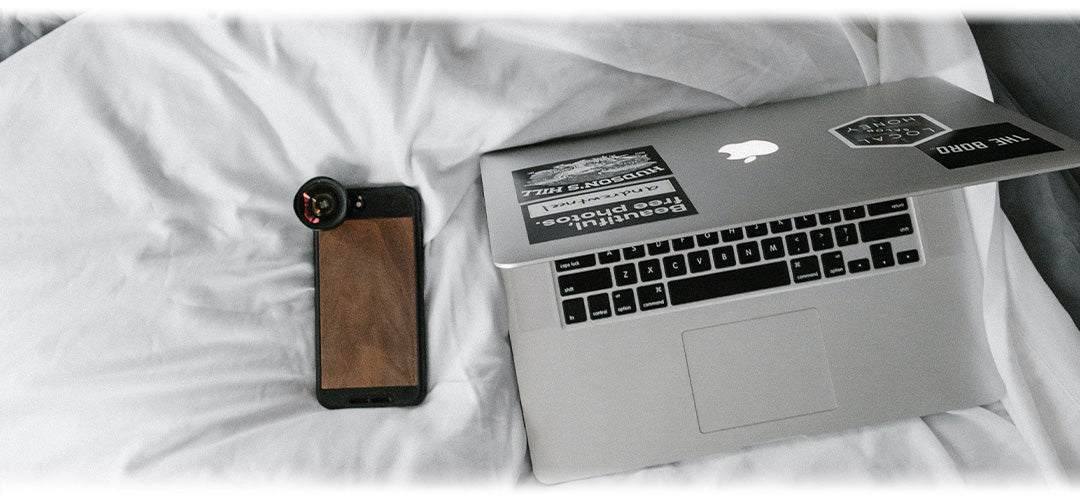
If you’re looking to improve your overall wellbeing, then getting enough sleep is essential.
Sleep is the building block for better health. It allows your body to rest and recuperate and your brain to process and store information properly.
It also strengthens just about every organ and function in your body. However, getting the balance right can be tricky. Get too little sleep, and you might be depriving your body of the downtime it needs to restore itself. Too much, and you may overdo things, making you sluggish and unproductive.
So, how much sleep do you need, and does it change the older you get? Read on to find out more.

• Why is Sleep Important?
Sleep plays a significant role in your physical health. When your body is in a fully rested state, it gets the chance to replenish its energy, repair or restore damaged cells and release all the essential hormones and chemicals your body needs to function correctly. A bad night’s sleep every once in a while can leave you feeling low, groggy and irritable, but it’s usually nothing to worry about. However, if you regularly don’t get enough sleep, it can lead to a host of chronic health conditions, including high blood pressure, heart disease, impaired brain function, digestive issues and immune system problems.
Getting the right amount of sleep, meanwhile, helps you to reboot your immune system and perform daily activities much better, with improved mental focus and agility. You’ll also be able to regulate your mood and emotions better and be more productive after a good night’s sleep.

• How Much Sleep Do You Need?
The amount of sleep you need depends on your age, lifestyle and activity levels and will vary from person to person. However, on average, the following will give you a good idea of the amount of sleep you should aim to get in each 24-hour period:
- Newborns: 14-17 hours
- Infants: 12-15 hours
- Toddlers: 11-14 hours
- Pre-school: 10-13 hours
- School-age: 9-11 hours
- Teenagers: 8-10 hours
- Young adults: 7-9 hours
- Adults: 7-9 hours
- Seniors: 7-8 hours
Although most average, healthy men and women should aim for between 7-9 hours of sleep per night, the patterns can vary. Women tend to sleep more than men but will often experience lighter sleep that’s more easily disrupted. Depression, pregnancy, hormonal changes, sleep disorders such as obstructive sleep apnoea or restless leg syndrome, or medical issues like arthritis, back pain or fibromyalgia can all affect how women sleep.
On the other hand, men can suffer poor sleep due to stress, depression, and medical issues like heart or circulatory disease. They’re also more inclined than women to take sleep for granted and stay awake longer than they should. Snoring is also an issue that affects both men and women but is more prevalent in men. Most people have experienced it, whether snoring themselves or trying to sleep next to someone who does. You’re more likely to snore if you’re overweight, smoke, consume alcohol excessively or sleep on your back.
Some devices and solutions can help prevent – or even stop – snoring. Some work wonders, while others don’t make a difference. This varies from person to person. Lifestyle changes will also help you to stop snoring, such as trying to sleep on your side. Snoring is not usually caused by anything serious, so there’s nothing to worry about, although you may have to ask your partner to invest in some earplugs if you’re keeping them awake.

• How to Get Better Sleep
There are no hard and fast rules to getting better sleep, as different things work for different people. However, there are a few things you could try. Getting into a routine is essential. Once your body becomes used to going to bed and waking up at the same time every day, it’ll naturally become easier to fall asleep. However, this can be easily disrupted if you take naps during the day, as you won’t need as much sleep at night.
So, unless you are really tired or exhausted, try to avoid the temptation to nod off in the afternoon and instead focus on getting 7-8 hours of quality sleep at night. Unplugging yourself from your electronic devices before bedtime can also help. Phones, tablets, laptops and computers all emit blue light, which prevents melatonin – the hormone responsible for promoting sleep – from being released. Scrolling through your social media or catching up on YouTube videos before bed will also increase your brain activity just before you switch the lights off, making it harder to doze off.
Try reading a book instead, dim your lights so they aren’t as harsh and listen to some relaxing sounds or music to help your eyes and brain switch off and prepare you for going to sleep. What you eat and when you eat it can have a significant bearing on how well you sleep. Eating a diet rich in fresh fruit and vegetables will give your body all the nutrients it needs to function correctly. However, eating stodgy food that’s difficult to digest – such as takeaways – close to bedtime will make your body work harder and keep you awake for longer.
So, too, will guilty pleasures like sugar, caffeine or nicotine, which are stimulants and can prevent your brain from switching off properly. Too much alcohol, meanwhile, might make you feel sleepy at first but can disrupt your sleep either by leaving you feeling dehydrated and in need of a drink to quench your thirst or waking you up to nip for a pee. Stress, worry or anxiety can also disrupt your regular sleep pattern and make it harder to fall asleep. So, try to relax and unwind before bed with a nice hot bath or an aromatherapy massage.
And if you’re really struggling, natural sleep supplements can help
Check out these links to find out more:
- Nerves, Stress, Relax & Sleep
- Adult immune System
- Adult Circulation & Heart Health
- General Nutrition
- Aromatherapy
Disclaimer:
Information and other content provided in Lily & Loaf blogs should not be construed as medical advice and should not be considered a substitute for professional medical expertise. If you have any medical concerns, you should consult with your health care provider.


